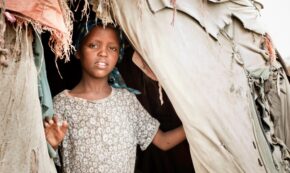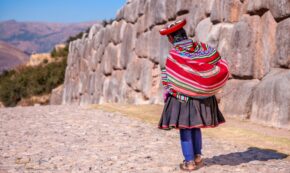With two-thirds of humanity predicted to be living in urban centres by 2050, our guest blogger looks at the often assumed connection between urbanisation and increased standards of living for city residents. But is this a coincidence? And how should governments act if so?
Supporting Waste Pickers in Brazil’s Cities: What’s Needed and What Needs to Change?
A recent study highlighted the crucial role waste pickers play in three Brazilian cities, but how can their working lives be improved and how can their valuable knowledge be incorporated into city plans for managing waste and meeting climate change targets?
A recent study highlighted the crucial role waste pickers play in three Brazilian cities, but how can their working lives be improved and how can their valuable knowledge be incorporated into city plans for managing waste and meeting climate change targets?
Mapping Brazilian Waste Pickers’ Risks and Their Responses to Climate Change
Waste pickers play a crucial role in many cities, reducing urban waste and mitigating greenhouse gas emissions in the process. A recent study looks at the impact climate change has on the lives and livelihoods of these essential workers.
Waste pickers play a crucial role in many cities, reducing urban waste and mitigating greenhouse gas emissions in the process. A recent study looks at the impact climate change has on the lives and livelihoods of these essential workers.
Is the International Community Failing Urban Refugees and How Do We Fix This?
We look at dispelling the myths that stand in the way of concerted action to support refugees in their efforts to settle, integrate and contribute to the economic life of the city, while creating lives for themselves and their families.
We look at dispelling the myths that stand in the way of concerted action to support refugees in their efforts to settle, integrate and contribute to the economic life of the city, while creating lives for themselves and their families.
Smallholder Farmers: Unsung Giants of Climate and Nature Investment
As an IIED-led survey reveals the impressive scale of smallholder farmers’ own investments in climate change adaptation, we call on world leaders gathering for the upcoming global climate negotiations (COP28) to provide more direct finance and tailored support for those on the frontline of climate change and biodiversity loss.
As an IIED-led survey reveals the impressive scale of smallholder farmers’ own investments in climate change adaptation, we call on world leaders gathering for the upcoming global climate negotiations (COP28) to provide more direct finance and tailored support for those on the frontline of climate change and biodiversity loss.
Burgeoning Growth of Deltaic Cities Puts Lives and Livelihoods at Risk
New data shows how city development in the world’s major deltas desperately needs effective and equitable planning to mitigate future climate-related catastrophes.
New data shows how city development in the world’s major deltas desperately needs effective and equitable planning to mitigate future climate-related catastrophes.
Silent Battles, Resounding Strength: The Lives of Transgender Refugees in Kenya
IIED and partners have been examining how urban development can be more inclusive of LGBTQI+ communities. Guest blogger Adrian Kibe discusses the experiences and struggles of LGBTQI+ refugees − focusing particularly on transgender individuals − as they seek to establish new lives in Kenya’s towns and cities.
IIED and partners have been examining how urban development can be more inclusive of LGBTQI+ communities. Guest blogger Adrian Kibe discusses the experiences and struggles of LGBTQI+ refugees − focusing particularly on transgender individuals − as they seek to establish new lives in Kenya’s towns and cities.
Navigating Conflict: My Difficult Journey to Become a New Climate Change Negotiator
Despite the ongoing conflict in her home country, Sudanese climate activist Tasneem Sied Ahmed is determined to amplify the voices of those who – like herself – are being affected by loss and damage. With IIED’s support, Tasneem attended the UN climate change negotiations in Bonn in June 2023 and now hopes to see crucial decisions on loss and damage made at the 28th UN climate change conference (COP28) in Dubai in November
Despite the ongoing conflict in her home country, Sudanese climate activist Tasneem Sied Ahmed is determined to amplify the voices of those who – like herself – are being affected by loss and damage. With IIED’s support, Tasneem attended the UN climate change negotiations in Bonn in June 2023 and now hopes to see crucial decisions on loss and damage made at the 28th UN climate change conference (COP28) in Dubai in November
Countries Missing Deadlines to Submit Climate Plans More Than Half the Time
Governments have shown a consistently sluggish response to the climate crisis over the last decade.
Governments have shown a consistently sluggish response to the climate crisis over the last decade.
Building Resilient Cities With the Resilience of Informal Workers
Guest blogger Sonia Dias states the case for an approach to urban resilience that puts informal workers front and centre. This includes a key role in the transformative system changes needed to tackle the impacts of climate change on the cities of the global South – and to reduce greenhouse gas emissions.
Guest blogger Sonia Dias states the case for an approach to urban resilience that puts informal workers front and centre. This includes a key role in the transformative system changes needed to tackle the impacts of climate change on the cities of the global South – and to reduce greenhouse gas emissions.
Struggling, Silenced and (Barely) Surviving the Perfect Typhoon
Queer environmental academic-activist Joel Mark Baysa Barredo reflects on how to address the systemic oppression and challenges faced by LGBTQIA+ people in Southeast Asia.
Queer environmental academic-activist Joel Mark Baysa Barredo reflects on how to address the systemic oppression and challenges faced by LGBTQIA+ people in Southeast Asia.
Queering Climate Justice − What Climate Justice Can Learn From Queer Groups
Queer thinking and practice offers new perspectives in framing climate justice and climate action.
Queer thinking and practice offers new perspectives in framing climate justice and climate action.
Getting Attention to Urban Health Issues – Or Not?
A personal look at the struggle to get urban health problems recognised and acted upon, and why priorities need to change.
A personal look at the struggle to get urban health problems recognised and acted upon, and why priorities need to change.
The Non-Economic Impacts of Loss and Damage: Destroying the Spirit, Breaking the Soul
The discourse on loss and damage largely centres around the ‘economic’ impacts of climate change. But non-economic impacts − from the strain on social bonds to debt-induced anxiety − are equally devastating. Research using a methodology based on locally identified values sought to deepen understanding of these intangible losses and damages from climate change
The discourse on loss and damage largely centres around the ‘economic’ impacts of climate change. But non-economic impacts − from the strain on social bonds to debt-induced anxiety − are equally devastating. Research using a methodology based on locally identified values sought to deepen understanding of these intangible losses and damages from climate change
Climate Chasm: The Yawning Gap Between Policy and Reality
The reality of life for climate-impacted urban dwellers in Bangladesh is far removed from what national policymakers and urban planners envisage for them. A new vision – incorporating local knowledge – is desperately needed to confront climate injustices.
The reality of life for climate-impacted urban dwellers in Bangladesh is far removed from what national policymakers and urban planners envisage for them. A new vision – incorporating local knowledge – is desperately needed to confront climate injustices.
Achieving 30×30: Supporting Indigenous and Traditional Territories and Cultures
If the world is to halt and reverse biodiversity loss by 2030, we must support Indigenous Peoples and local communities to strengthen and protect their territories and cultures, and ensure their full and meaningful participation in developing conservation policy.
If the world is to halt and reverse biodiversity loss by 2030, we must support Indigenous Peoples and local communities to strengthen and protect their territories and cultures, and ensure their full and meaningful participation in developing conservation policy.















